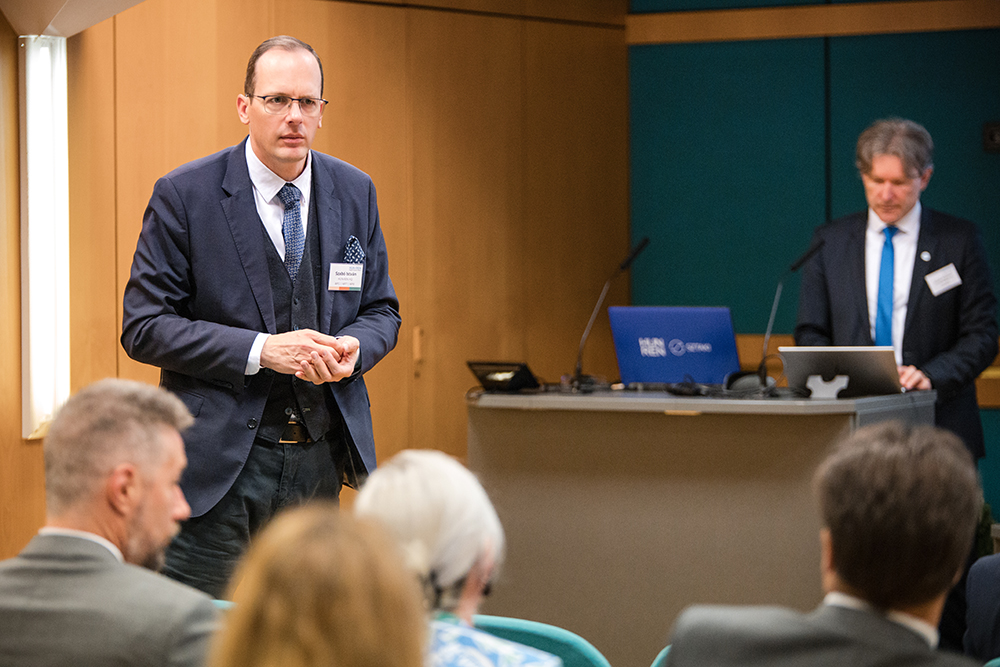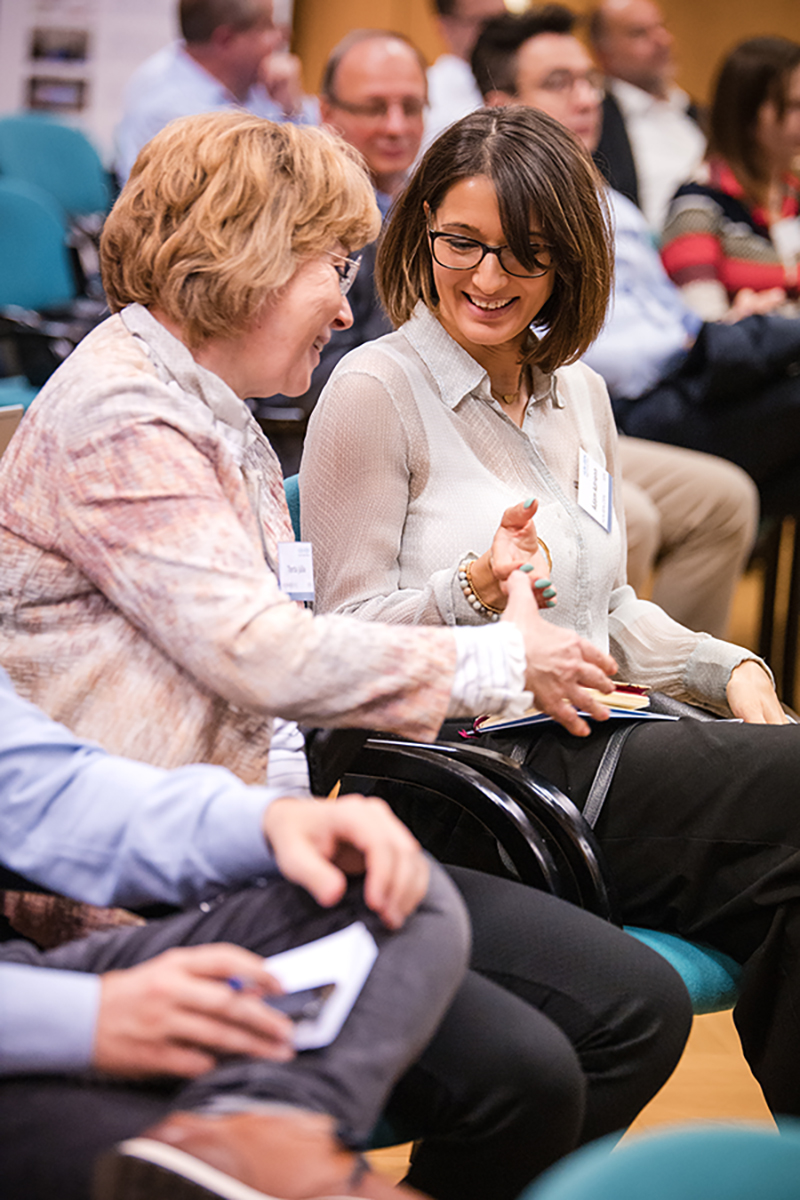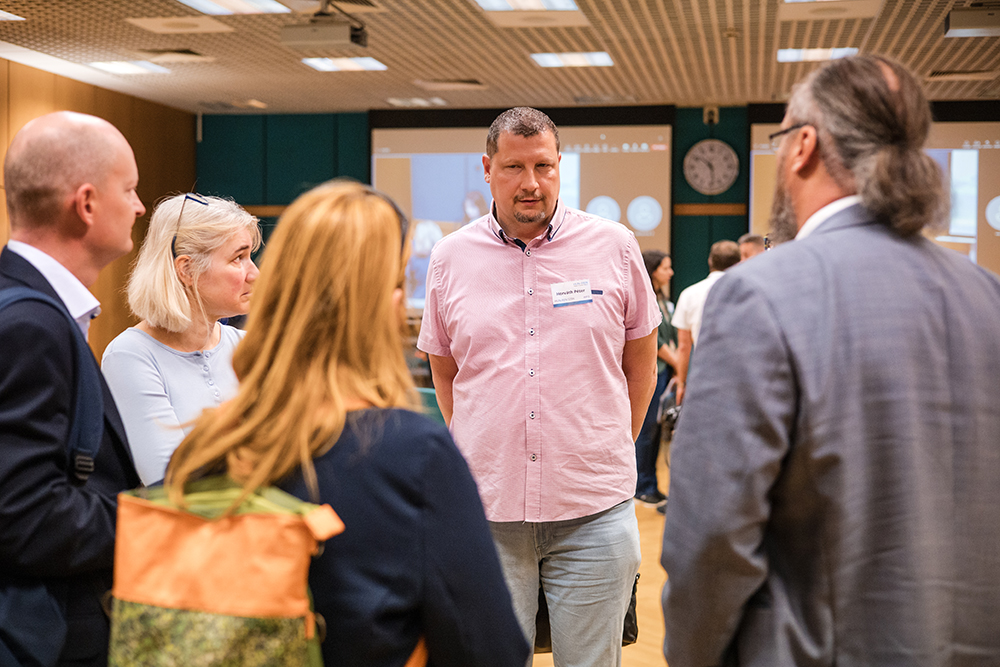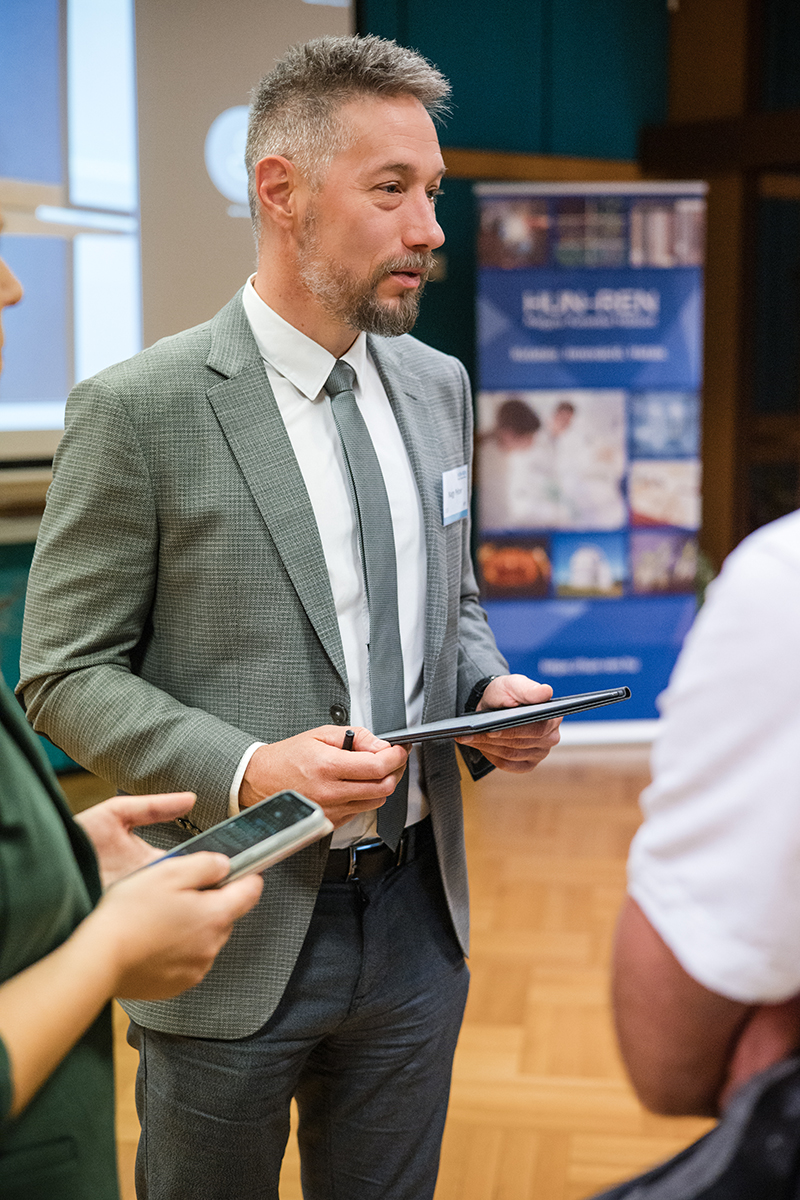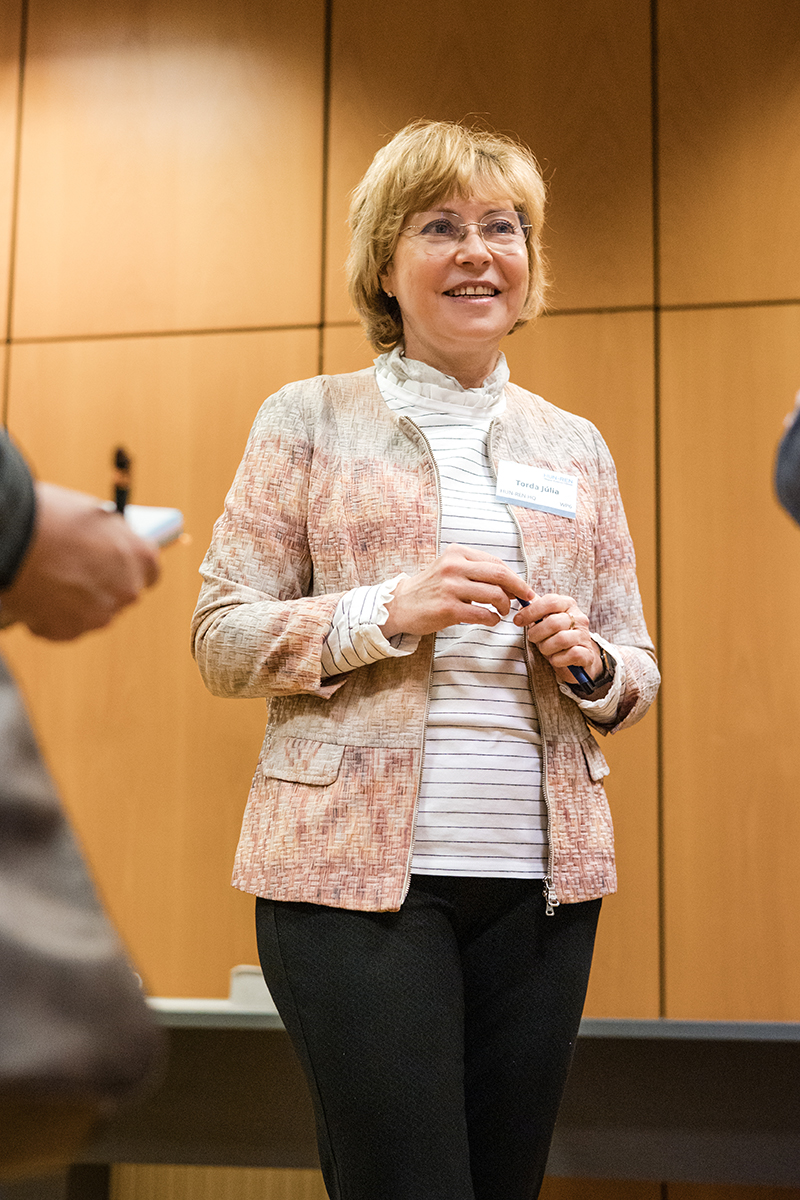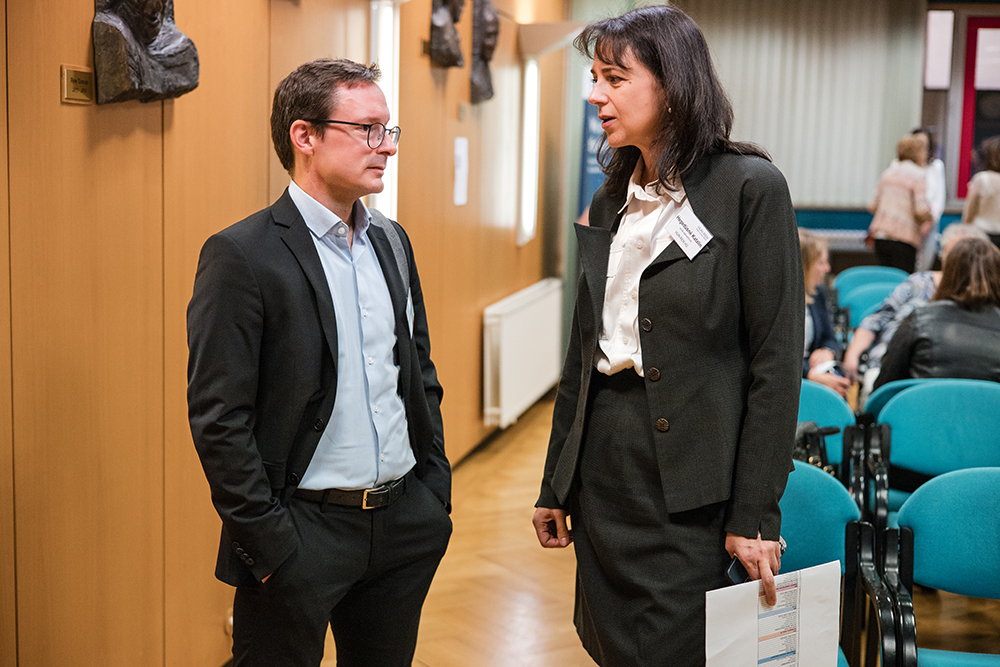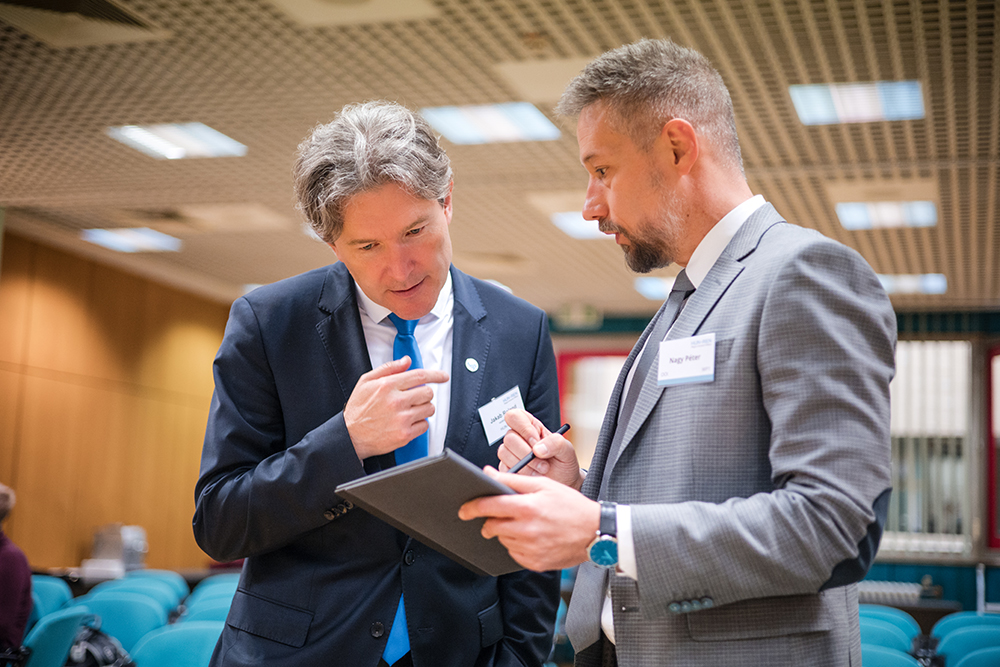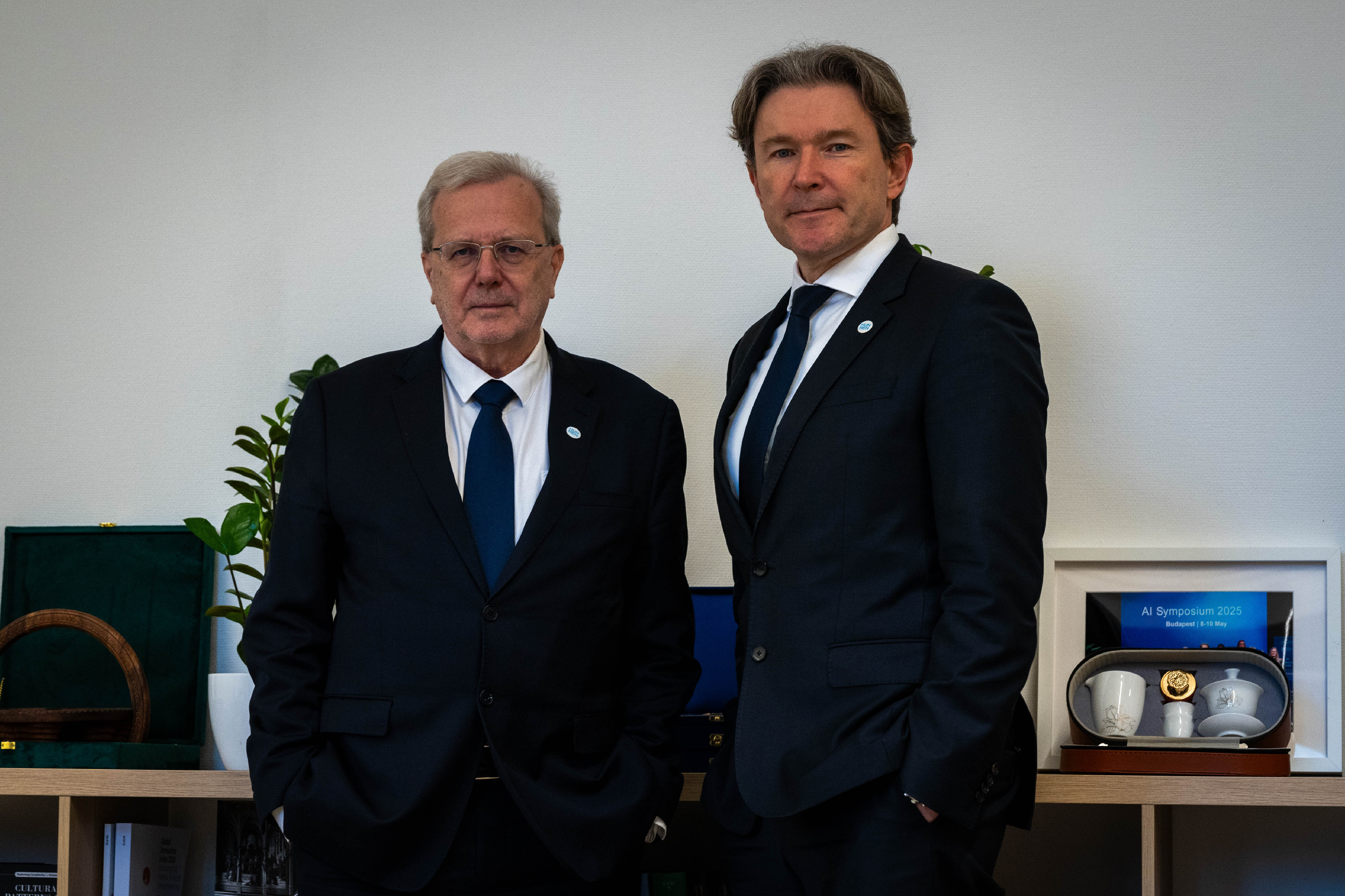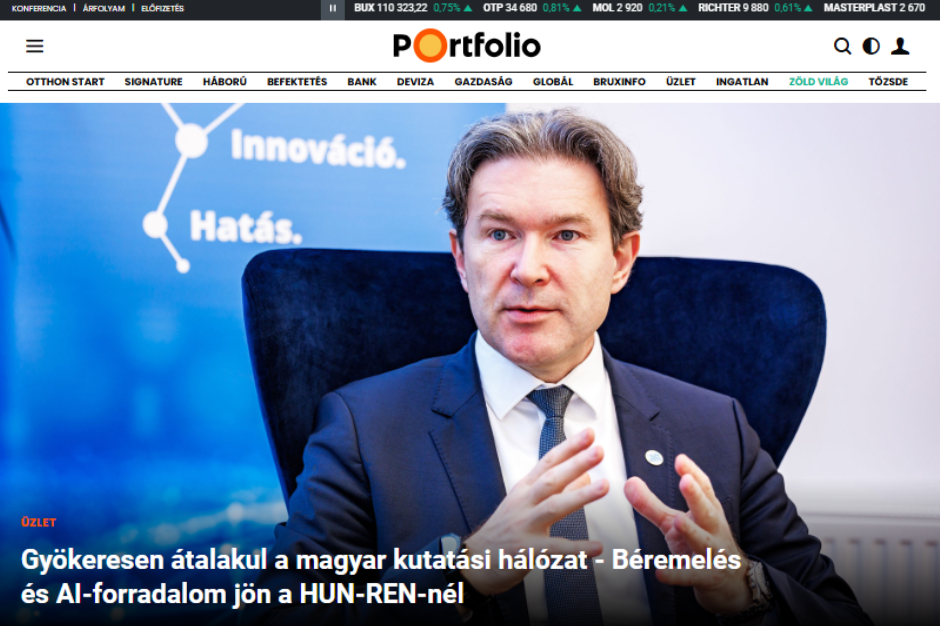Stability and Development, Dialogue and Engagement
Eight work packages set to work on preparing HUN-REN's strategic development
A milestone in the renewal of HUN-REN is the formation of eight work packages to assist in the development of the Hungarian Research Network's strategic concept. The operational strategy, prepared with broad organisational consensus, will enable an effective and modern organisational structure to be established from January 2025 for operating the network's research sites.
‘The transformation is driven by the need for positive change and stability,’ announced Balázs Gulyás, President of HUN-REN, in his introduction at Monday's project launch event, emphasising that the strategic transformation of HUN-REN is part of a well-considered renewal. ‘A creative process begins, involving the work packages and, through them, the research sites. The progress it brings will enable us to support research, development, and innovation, as well as the integration of Hungarian research results into the value chain as effectively as possible.’ The president of HUN-REN added that another element of the long-term process initiated earlier is the international review of research sites, which provides the leaders with an accurate picture of the network's strengths, values, and challenges.
The newly established project organisation operates through eight work packages, with the participation of research site representatives and expert partners, to develop a comprehensive development concept for the network. ‘Stability and development, dialogue and engagement are our most important keywords,’ stated Balázs Gulyás. It is extremely important for the leaders of HUN-REN that each member of the research community feels they are part of this crucial process. The President has asked the work package members to also channel the opinions of their colleagues at the research sites into their work, thus representing their fellow researchers as ambassadors of HUN-REN’s renewal.
Roland Jakab, CEO of HUN-REN, detailed the topics and commitments of the work packages: 'We expect more efficient, higher-quality research and, consequently, more innovation from the operations based on the renewed strategy, both at the HUN-REN Headquarters and within the network. The aim is therefore to find that "ideal" path along which the organisation's structure and processes can be made more efficient, while keeping research at the forefront.' He highlighted that the members of the work packages jointly examine various topics and aspects before formulating recommendations.
The entire process is overseen by the Steering Board, led by President Balázs Gulyás, with members including Gábor Szabó, a member of the HUN-REN Governing Board and former Rector of the University of Szeged; Alexander J.B. Zehnder, Chairman of the HUN-REN Advisory Board; and Jana Kolar, Executive Director of the Central European Research Infrastructure Consortium (CERIC-ERIC). Project management is provided by the Chairs of the individual work packages (in the order of the groups: Péter Nagy, István Szabó, Dávid Ritter, Eszter Tóth, Zsolt Szalay, Júlia Torda, Petra Aczél), under the direction of CEO Roland Jakab and with the support of a quality assurance inspector.
After the launch in May, the work packages are required to produce an exploratory analysis and a corresponding problem map of their respective areas by the end of June. By the end of August, they are expected to formulate recommendations and suggestions related to the challenges previously identified. A synthesis report, including a specific action plan, risk analysis, schedule of measures, and the resources required for these, is due by mid-September. Based on these documents, the implementation phase will continue until December.
Roland Jakab also pointed out that HUN-REN HQ provides active support for the work: on one hand, top internal experts from each field have been invited to participate in the joint effort; on the other hand, a common cloud-based platform is available for all groups, with HUN-REN HQ also providing the venues for the meetings.
- The eight work packages and their key tasks:
- International Scientific Assessment: Provides a coherent landscape analysis of current performance in terms of science, innovation, and impact. It makes suggestions for improvements, develops a blueprint for typical performance mandate, and reviews the improvement plans of research sites and the actions taken based on the previously conducted assessment.
- Governance, Hiring, and HR: Identifies the strengths and weaknesses of the current network structure. It makes suggestions for more agile organisational solutions and for addressing issues related to the low incomes of PhD students.
- IT & AI: Develops a coherent plan for integrating artificial intelligence into research routines. Formulates plans to introduce a business intelligence system and makes recommendations on the contents of the HUN-REN HQ’s AI Strategy and the connecting action plan.
- Financing, Administration, and Procurement: Provides suggestions to eliminate or simplify non-value-added processes and introduces electronic document management. Identifies the financial situation within the network and makes suggestions on the main rules of funds allocation.
- Innovation and Technology Transfer: Develops an action plan to identify existing innovation capacities within the network and makes recommendations for technology transfer opportunities. Collects best practices in business-academia collaboration and formulates recommendations for their adaptation.
- Communications: Develops a strategy for the communication of HUN-REN and HUN-REN HQ, focusing on reaching as many stakeholders as possible.
- Policy Advisory: Develops a system and a concept for HUN-REN to serve as the primary policy support in Hungary for science and innovation and makes suggestions for improving the funding of science and technology. Identifies areas that are of high importance for the government and the capacities available at the HUN-REN network.
- Future Researchers: Develops a science orientation strategy for HUN-REN, identifies research career opportunities, and makes suggestions on how to attract more young and international students to research careers.

